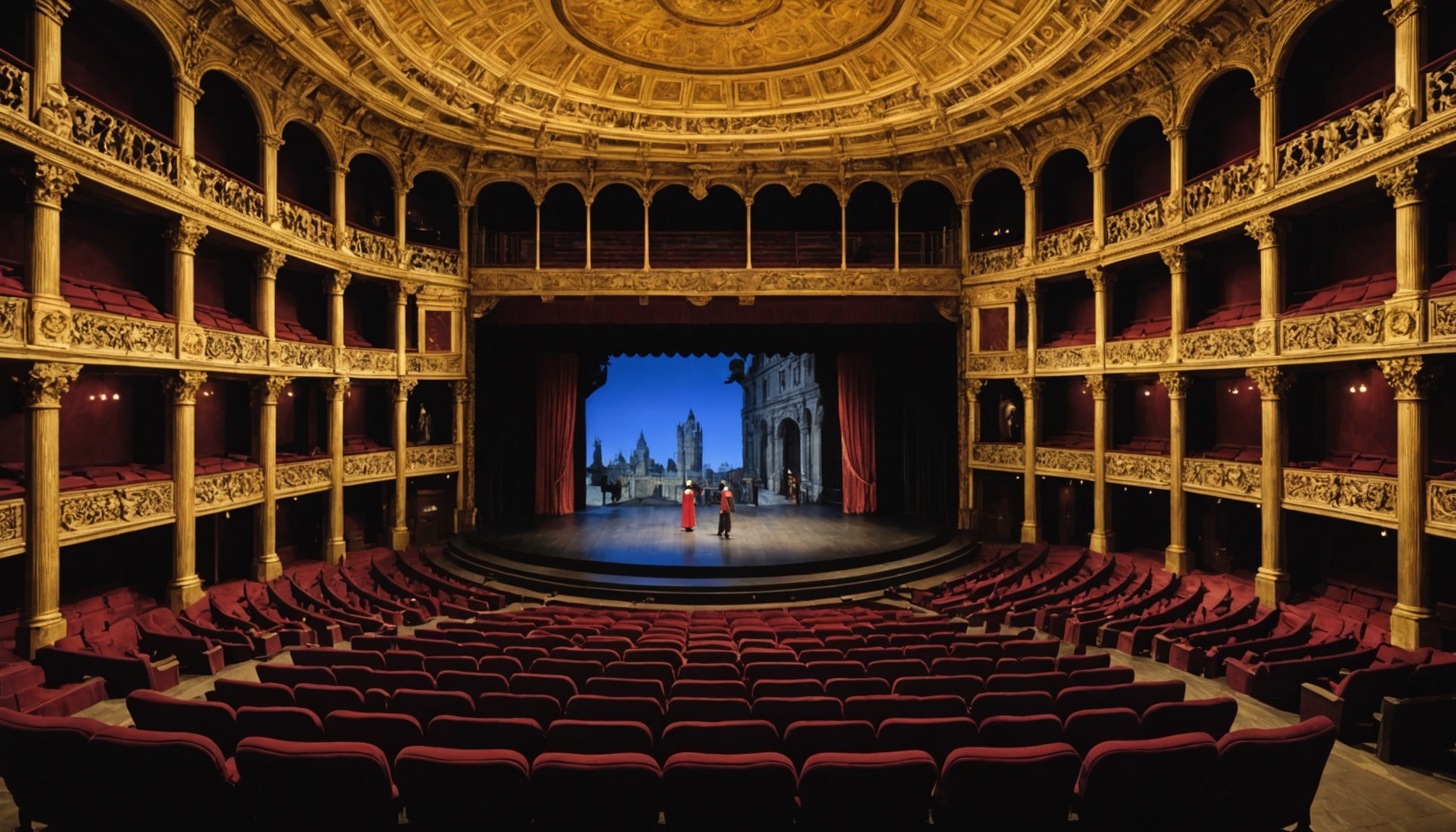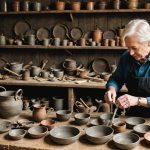Overview of British Theater History
The evolution of British theater is a tapestry woven with cultural and artistic threads, beginning as early as medieval times. Initially, British theater was enriched by religious plays known as morality plays, which sought to impart moral lessons to audiences. Over time, these evolved, influenced heavily by Renaissance theaters under the reign of Elizabeth I. This period witnessed the historical impact of Shakespearean dramas, solidifying theater as both an art and an enterprise.
Significant movements that contributed to British theater’s evolution include the Restoration period, where theater embraced elegance and wit, and the 19th-century Romantic movement, which emphasized emotion and individualism. These movements laid the groundwork for modern theater, shaping narratives and staging styles seen today.
Also read : Discover UK Botanical Gardens Featuring Expert Tours on Heirloom Vegetable Cultivation
British theater history boasts key figures who have left indelible marks. William Shakespeare, often regarded as the greatest playwright, innovated with profound storytelling and character depth. In the same vein, Christopher Marlowe and Ben Jonson provided foundational works, challenging societal norms and experimenting with form.
Today, these historical influences are evident in contemporary productions, reflecting the enduring legacy of British theater and its remarkable evolution across centuries.
Additional reading : Explore Interactive Workshops on Britain”s Coin Minting History: A Tourist”s Guide
Iconic Theaters in the UK
Exploring the United Kingdom’s famous theaters unveils a rich tapestry of history and culture. These historic venues are more than just performance spaces; they embody centuries of artistry and innovation.
The Globe Theatre
The Globe Theatre stands as a testament to the enduring legacy of Shakespeare. Originally built in 1599, this iconic structure captures the essence of Elizabethan architecture. Set on the banks of the River Thames, the theater has been rebuilt to reflect its original design, offering visitors an immersive experience into the world of Shakespearean drama. Here, one can enjoy classic plays in an environment that mirrors the past, complete with an open-air stage.
The National Theatre
Nestled on London’s South Bank, The National Theatre is a hub of contemporary and classic plays. Its modernist design contrasts with its historical counterparts, yet it holds a significant place in the UK’s theatrical scene. The theater is renowned for pioneering innovative productions and nurturing new talent. Opportunities abound for backstage tours, where enthusiasts can witness the behind-the-scenes magic.
The Royal Opera House
A crown jewel in performance spaces, The Royal Opera House in Covent Garden is an architectural marvel. Known for its grandeur and opulence, it hosts some of the world’s finest opera and ballet. The venue’s rich historical significance is complemented by exhibitions showcasing costumes and stage designs, inviting audiences to dive deeper into its illustrious past.
Noteworthy Festivals Celebrating Theater
In the vibrant world of performative art, theater festivals stand out as crucial cultural events. They provide an excellent platform for artists to showcase their talents and for audiences to immerse themselves in some of the most creative spectacles.
Major Theater Festivals in the UK
The United Kingdom is home to many celebrated theater festivals that attract performative art enthusiasts from around the globe. The Edinburgh Festival Fringe, often considered the world’s largest arts festival, is integral to the British cultural calendar. Featuring a vast array of performances from comedy and drama to experimental theater, it offers something for everyone. Similarly, the Manchester International Festival is renowned for premiering new works that push the boundaries of the art form.
Unique Immersive Experiences
These festivals are not just about traditional plays. They are known to offer immersive experiences that engage audiences in novel ways. For instance, site-specific performances blur the line between stage and reality, transforming everyday locations into dramatic settings.
Notable Performances
Each festival boasts its own lineup of must-see performances. In recent years, avant-garde productions and reinterpretations of classic plays have captivated audiences, ensuring that theater festivals remain exciting and unpredictable. Attendees leave enriched, having witnessed cultural events that challenge and inspire.
Key Museums and Educational Institutions
The interplay between culture and education takes centre stage through various notable institutions dedicated to the arts. These centres excel in facilitating understanding and appreciation for theatre, not only showcasing historical narratives but also fostering future talents through comprehensive educational programs.
The Victoria and Albert Museum
The Victoria and Albert Museum is an illustrious destination, rich in British theatre history. Its exhibits often include fascinating costumes, stage props, and archival documents, providing a vivid narration of theatrical evolution. The educational programs here are extensive, offering workshops and tours designed to captivate and educate visitors about theatrical arts.
The Theatre Museum
Focused predominantly on the performance arts, the Theatre Museum is an engrossing resource within the realm of theater museums. It houses extensive collections celebrating the spectacle of performance, from the grandeur of past productions to contemporary innovations. Their educational tours and workshops are crafted to inspire enthusiasm amongst visitors of all ages.
Training Institutions
Training institutions play a pivotal role in molding the next generation of theatre professionals. These institutions, through educational programs, provide vital training that highlights technical skills and creative expression. Future icons of the stage are often cultivated in such environments, emphasizing the importance of structured learning in theatrical professions.
Interactive and Immersive Experiences
Immersive theater in the UK has become a transformative genre that provides audiences with more than just a show; they are offered a unique experience that blurs the lines between performer and spectator. Unlike traditional theater, immersive theater invites the audience to be an active participant in the narrative. This can involve wandering through elaborately designed sets, interacting with performers, or even influencing the direction of the storyline.
Interactive productions elevate this engagement by incorporating audience participation as a core element. For example, Punchdrunk’s “Sleep No More” allows attendees to explore scenes at their own pace within a vast, multi-leveled setting, creating a personal and varied experience with each visit.
The UK boasts notable immersive theaters such as The Vaults in London, which regularly hosts productions that challenge conventional theater norms. Here, audience participation is not just encouraged; it is essential. Other standout examples include Secret Cinema, which combines film screenings with immersive live-action experiences.
These interactive productions are not only entertaining but also foster a deeper connection between the audience and the narrative, offering a personalised experience that traditional theater cannot replicate. Their popularity continues to rise as people seek more engaging, unforgettable artistic experiences.
Behind-the-Scenes Tours and Workshops
Behind-the-scenes tours and workshops offer theatre enthusiasts a unique opportunity to delve deeper into the theatrical world. These experiences not only unveil the magic occurring backstage but also provide valuable insights into performance preparation.
Workshop Opportunities
Engaging in theatre workshops can significantly enhance one’s understanding and skills in performance training. Workshops are typically designed for different age groups, offering tailored experiences for both novice and advanced actors. From youth-focused sessions introducing basic acting techniques to advanced workshops exploring method acting, these sessions are rich in learning potential. Participants gain hands-on experience, which can be pivotal in their artistic development.
Private Tours of Historic Theaters
Taking a behind-the-scenes tour of historic theaters offers a glimpse into the rich history and architectural magnificence of these iconic spaces. During these tours, attendees are often guided through areas typically off-limits, including props departments and costume rooms. Such tours not only flesh out the theater’s history but also allow participants to appreciate the intricate efforts that bring a production to life.
Discussions with Theater Professionals
One of the highlights of these events is the opportunity for Q&A sessions with seasoned actors, directors, and industry professionals. These discussions offer practical insights and first-hand advice, enriching the participant’s knowledge and passion. By engaging directly with industry leaders, attendees can gain a deeper understanding of the creative process and the essential skills required in theatre.











